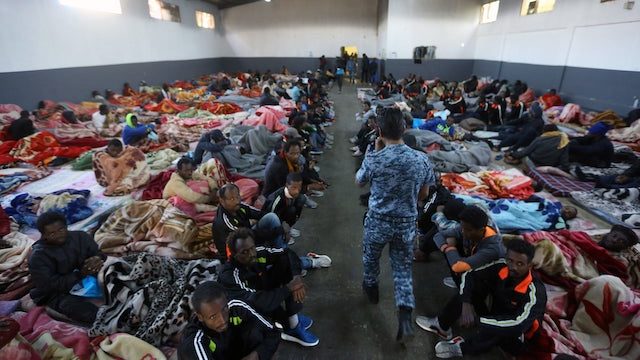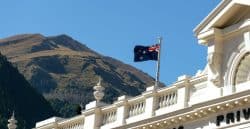A recent privately screened documentary gives an in-depth look at life inside Libya’s detention centers for migrants, notorious for horrific conditions. Survivors speak out about the horrors they endure including forced labor, torture, sexual exploitation, and even executions. The film was shown to NGOs and the media and the filmmakers remained anonymous so they could continue to have access for future filming.
An estimated 5,000 people are held captive, mostly foreign citizens from various countries, including Cameroon, Eritrea, Ethiopia, Sudan, Egypt and Bangladesh.
“They call us slaves…we’re in a terrible state of fear.”
Detainees, ranging in age from as young as 5 years old to persons in their 70s, are held until their release can be paid for – at exorbitant sums – by themselves or family members. However, most arrive penniless, having already paid smugglers to get them out of the country, leaving them trapped in a cycle of exploitation and captivity. Even those who manage to gather funds are sometimes sold to smugglers or other detention centers.
James Cummings for the Times of Malta reports,
While conditions inside the government centres are better than the hostage centres ran by smugglers, detainees said they faced difficult conditions.
They reported a lack of access to medicines and sparse supplies of food and water, with one man describing small portions of food as “not enough for a cat”.
The provisions that are supplied can be seen in the documentary being slid under locked iron doors into unventilated rooms housing large numbers of migrants, refugees, asylum seekers and other captives camped out on mattresses on the floor.
Endangered lives – and the E.U.’s role
Escape attempts are squashed with deadly force. Even if persons can make it out alive, traversing the Mediterranean Sea is just as hazardous.
Detainees describe boarding small boats with limited supplies, overcrowding, and mental instability. Lack of water and food on these perilous crossings often leads to desperate and life-threatening situations. Then there are coastguards to dodge.
Financial support to Libya’s coastguard by the E.U. has led to intercepting and returning migrants seeking passage across the Mediterranean, further endangering their lives.
Take a stand
Activists and organizations are urging the E.U. to stop facilitating the exploitation of people in Libya. Join us today – sign the petition.







Freedom United is interested in hearing from our community and welcomes relevant, informed comments, advice, and insights that advance the conversation around our campaigns and advocacy. We value inclusivity and respect within our community. To be approved, your comments should be civil.
Great